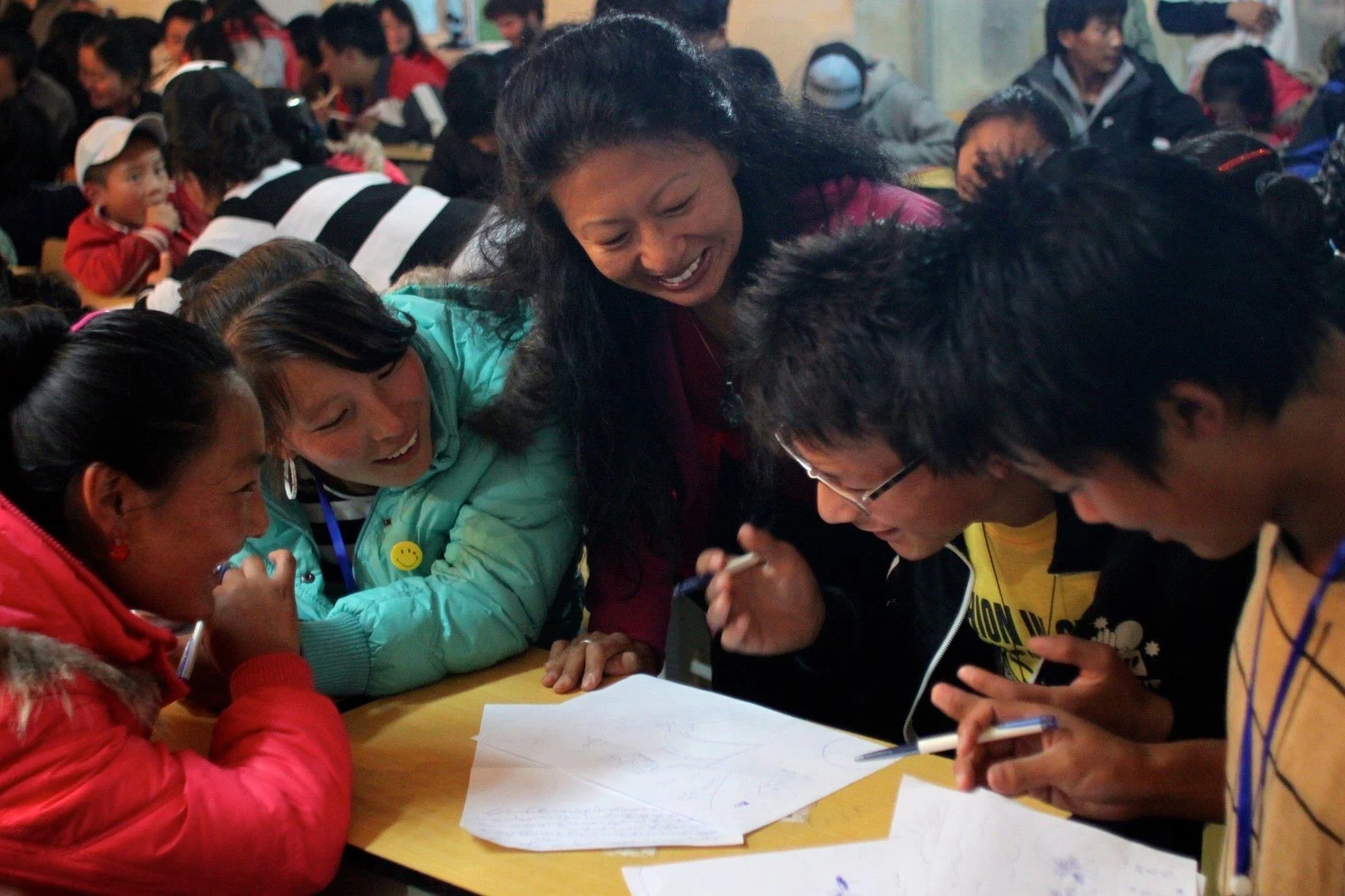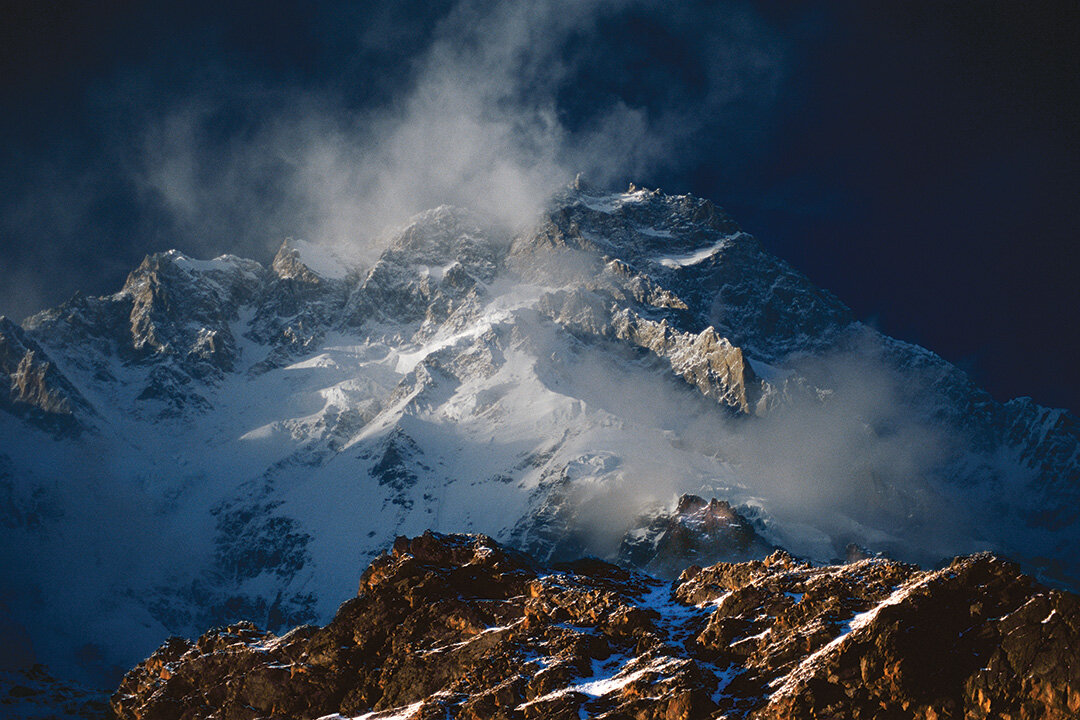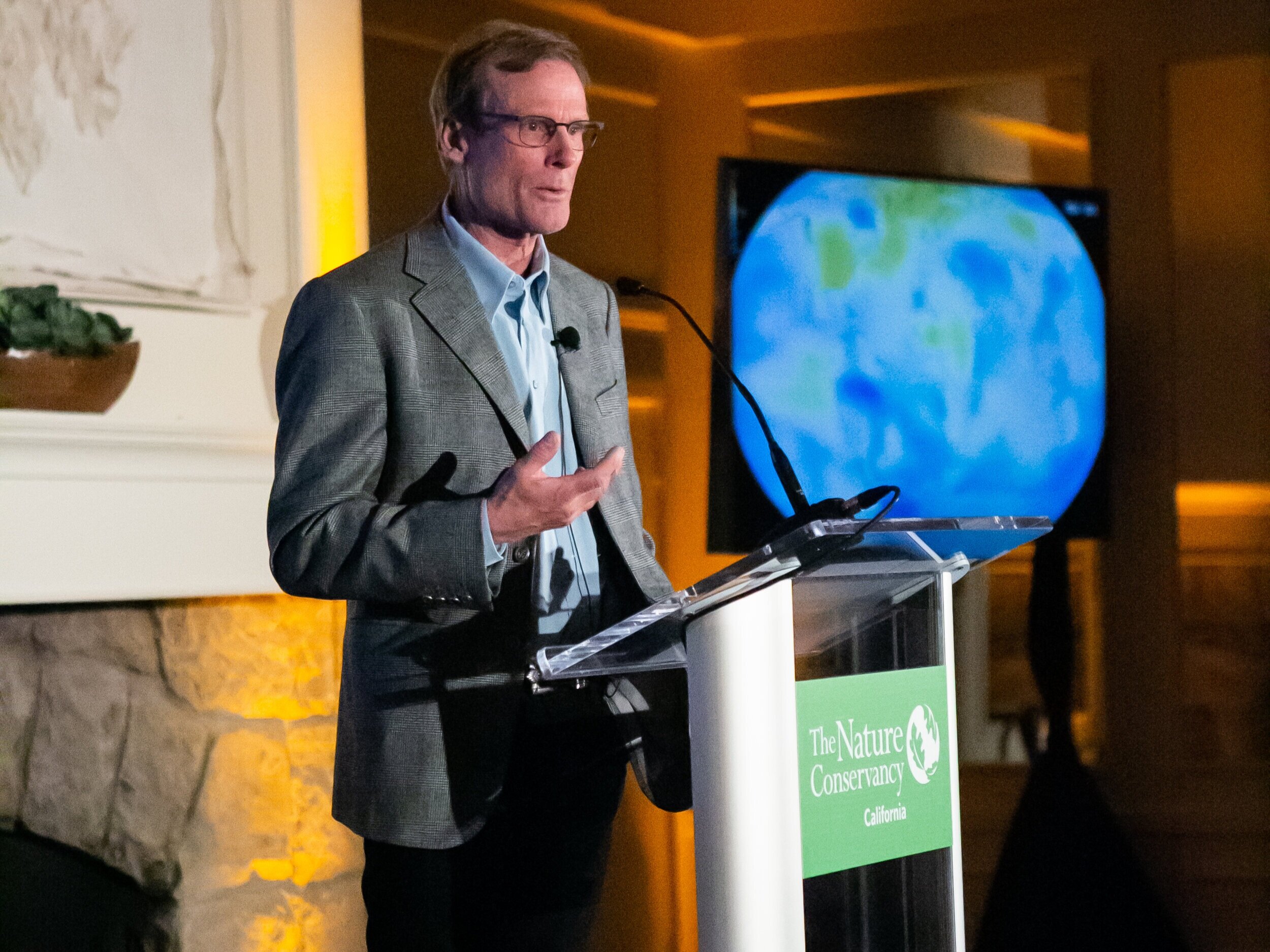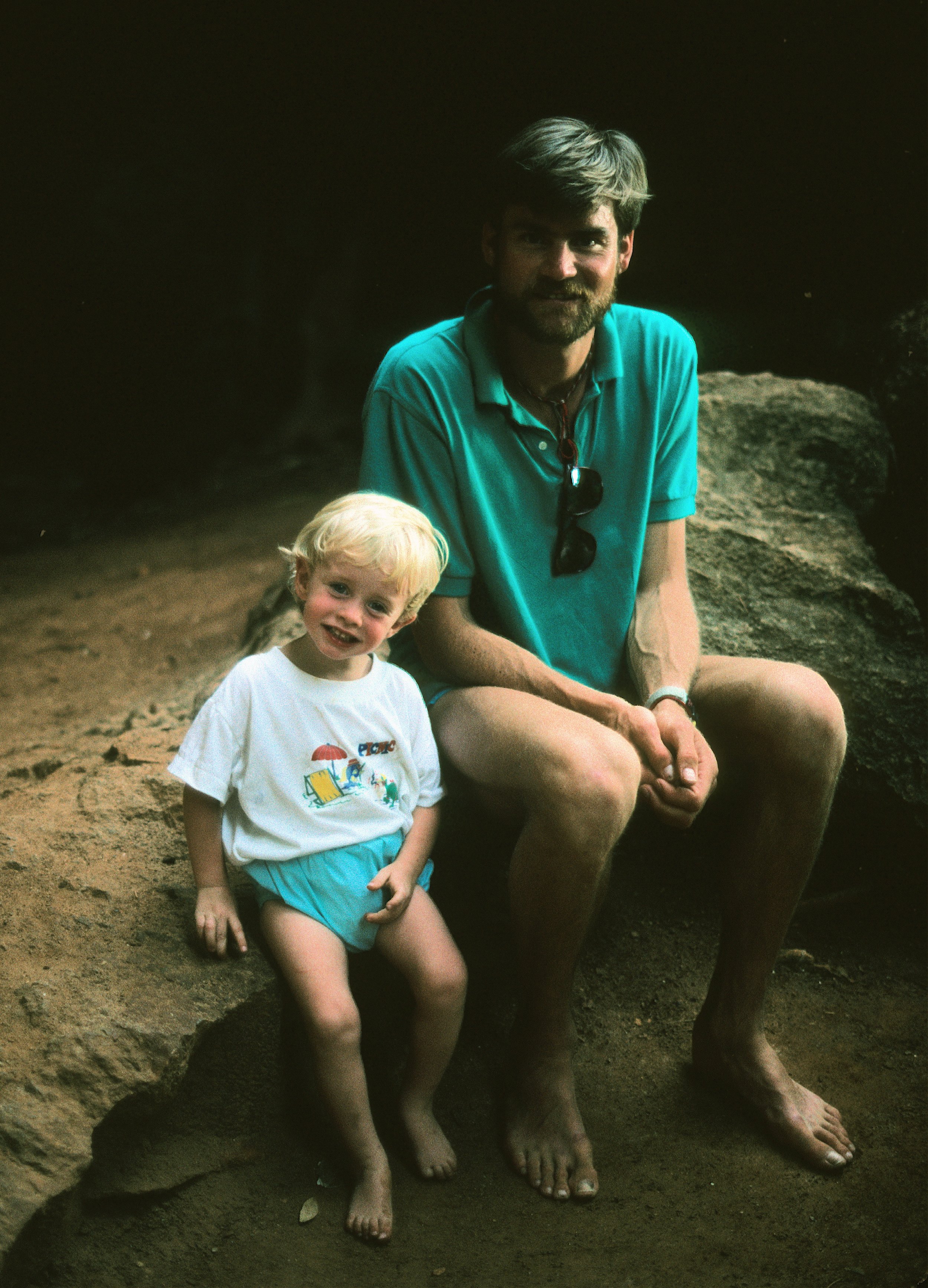FILM| TORN: Max Lowe's Raw Reflections on Loss and Homage to a Family Transformed
/The Lowe-Anker family set off on a journey to Tibet in 2017 to recover the body of renowned alpinist Alex Lowe, whose frozen remains were identified by climbers the year prior emerging from a melting glacier at the base of Shishapangma—an 8000-meter peak in Tibet. Max Lowe, Alex’s eldest son, filmed the experience, which served as the impetus for producing his award-winning film. Photo: Max Lowe
Interview by Mary Anne Potts
Filmmaker Max Lowe.
For filmmaker Max Lowe, perhaps the greatest story of his life is his own. And that is challenging. The son of two of the world’s best alpinists—his father Alex Lowe, died in 1999 in an avalanche on Shishapangma while climbing with his best friend, Conrad Anker, who later became a father to Alex’s three boys. The story has been intriguing to many, and has been chronicled in the film Meru and in Max’s mother’s book, Forget Me Not. But no one has had quite the vantage point as Max, the eldest son, who was ten when his dad died—old enough to remember and question the events and decisions of his family.
Now 33, Max began contributing to National Geographic after receiving a Young Explorers Grant in 2012. Ten years later—in autumn 2022—he released his documentary feature, Torn, with National Geographic Documentary Films, which takes an honest look at his extraordinary family. The film has been reviewed in The New York Times, The New Yorker, and various other publications.
—Mary Anne Potts
Mary Anne Potts: Getting a film produced and distributed by National Geographic at any age is impressive, nevertheless under 40 years old. How did that come to be?
TORN director Max Lowe with his father, the late Alex Lowe, who was the considered the world’s most accomplished alpinist when he was buried in a massive avalanche in 1999 on Shishapangma, an 8,000-meter peak in Tibet near its border with Nepal. Photo: Jenny Lowe-Anker
Max Lowe: I would say that completing this film has been the peak of a long and winding journey in my career as a storyteller. I never set out to direct feature films, much less did I ever expect ten years ago that this is what I would be doing for work. For me, storytelling has always been a tool by which I was able to access worlds beyond my own, whether that’s physical worlds that I might not have the confidence that I belonged in, or emotional realms of exploration with characters— and, indeed, myself, using a camera as the vehicle. The journey has truly been a thousand small steps to get to this point: a lot of just doing something because I believed that I could—not necessarily that I was totally qualified to—and being surrounded by an amazing network of peers and mentors who helped me find the way.
My partnership with National Geographic began with a grant for emerging storytellers under the age of 26, and two women at Nat Geo—Rebecca Martin and Mary Anne Potts—who saw the potential in me and helped foster it, which really set me on my way toward achieving what I have. As cheesy as it is, the metaphor of looking up at a mountain—at the same time realizing that it seems impossible, and yet you just start walking towards the distant summit—relates pretty accurately to how I have achieved most of the things in my life, including the completion of this film.
And just like my other important work, this film would never have happened if it weren't for my mentors and partners: my producer Chris Murphy, my editor Michael Harte and the support of all the people at Lightbox and National Geographic Docs.
“There was a lot of anxiety and other emotions that resurfaced leading into that trip. Uncertainty mainly—how would it feel to face my hero again, someone who I thought was lost forever?”
MAP: For those who do not know your family story from Meru, or your dad, Conrad Anker, or your mom's book Forget Me Not, how would you encapsulate what TORN is about?
ML: It’s really a story of love and family and how it is ever shifting throughout our lives, but never fully lost. The decision to let yourself love something fully might be the hardest decision of your life because you think it means you can’t have the rest of it, you’re “torn,” so to speak. But figuring out we can open our hearts to someone without fully letting go of someone or something else is the real secret. That’s really the story Torn speaks to. How my family and myself can navigate through love and loss, and come out on the other side with an open heart for what comes next.
MAP: It's such a deeply personal story, did you feel ready to tell it when you started? Or was the whole process a journey of personal discovery?
Alex and Jenny Lowe with Max (left) and brother Sam, on one of their frequent family ski trips to Utah. Before starting a family, Alex and Jenny worked for a time on avalanche patrol in Utah.
Photo: Lowe Family Collection
ML: The first time I spoke about my family’s story from my side of the lens, I didn’t think I was ready. But could anyone ever really be ready to lay out all their inner struggles and grief to the public? As emotional as it first was to do that, I learned so much about myself in the process of telling my own story, just by allowing myself to be vulnerable about the truth of it with others. It was after that experience that I really fully recognized the power in vulnerability, and in what people could garner and see in themselves from how I navigated through my own grief.
MAP: Where are some of the places you shot this film?
ML: A lot of the film was shot in the place where the story really happened, our home in Bozeman, Montana. There are also shots in Colorado, Nepal, and Tibet in the real time footage, although the archive presented spans the globe from Antarctica, to Baffin Island, Wyoming and Italy.
MAP: Going to Shishapangma to recover Alex's body from the glacier was when this film "started." Tell us about that trip.
ML: There was a lot of anxiety and other emotions that came back up to the surface leading into that trip. Uncertainty mainly—how would it feel to face my hero again, someone who I thought was lost forever. There’s no way to prepare for something like that. That’s part of the reason I wanted to film it. Being behind the lens felt like it gave me a sense of comfort and space from the beyond-fictional reality through that trip, and having filmed it, I could process some of those emotions deeper from watching me and my family go through it. It was coming out of that trip I think that I first began to see what Torn could and would become.
MAP: The Khumbu Climbing Center, which educates Nepali people in technical climbing skills, is in honor of Alex. Why?
ML: Alex spent a lot of time in that region and always felt at home there. They gave so much to him in friendship and partnership, and it was a place he always wanted to share with his family. So after Alex’s death, and my mom and Conrad started to think about ways they could honor Alex and his life, doing something for the communities of people who live climbing in the most intimate and visceral way—that Alex had such a close tie to—was a clear choice. My parents started the Khumbu Climbing Center as a project of the Alex Lowe Charitable Foundation, a larger organization to support all indigenous mountain people to have safer livelihoods as mountain workers.
MAP: Your dads are known for their elite climbing expeditions to some of the most storied—and dangerous—mountains in the world. How has their living on the edge shaped your choice to be behind the camera?
ML: Growing up, and looking up to each of my parents, it always seemed to me that they chose and led these wild, adventurous lives on the edge of what for most might seem acceptable. Alex, especially, was a charismatic guy always chasing a full life, and doing it fast so as to not miss out on the next thing. I think unconsciously I saw that, and just pinned that up as my objective in life as well—to do the things I’m passionate about and do it with courage and grace. Not allowing fear of the unknown to thwart decisions on how they shaped their lives is something that each of my parents have done well. That’s what I strive for.
Conrad Anker, Alex’s Lowe’s best friend and longtime climbing partner who survived the avalanche where Alex perished, would step in to adopt Max and his brothers Isaac (middle left) and Sam (middle right)—when he married their mother, Jenny Lowe, a couple years after the loss of their father. Photo: Jenny Lowe-Anker
MAP: What have you learned through processing the loss of your father—and "adopting" a new father—that would be helpful to others, particularly during this period of tremendous loss due to the pandemic?
ML: I think I and many others struggle with letting ourselves be truly happy or love again after losing someone close to them. In some ways you worry about the person you lost and what they might think if they saw you moving forward, leaving them behind. I struggled with that at a really young age after losing Alex and still am trying to grieve that loss I think—much of that being tied into my need to make this film. I think I have learned that that trauma and grief isn’t something that ever goes away: It sticks with us, just like the person we lost, and we just have to constantly work to manage that as part of ourselves. But just because you’re working through that grief or loss, doesn’t mean you still can’t have the happy parts too. You can miss someone and still love someone else, and I think that is where I eventually found myself in my relationship with Conrad. I still loved and held Alex in this place of high regard to who I was, but eventually I learned to let Conrad in as my dad.
“First and foremost just follow your intuition on the direction you might want to go, the stories you might want to be a part of, and then just take the first steps in that direction. Storytelling is an art of emotion, so let your feelings lead the way.”
MAP: You have been making films for years, but this is certainly the pinnacle. What draws you to storytelling?
ML: The people. I love hearing someone tell their story, see how they learn something, maybe even in that moment by sharing it with me. Through hearing those stories I learn more about myself and I know others do as well. It’s one of the biggest pleasures in my life, being trusted to listen and then paint a picture of someone’s truth through my lens. Selfishly, being able to step into the shoes of different people across the globe, and see for a moment the magic of what drives their passions, fears, loves—it's one of the most amazing gifts.
MAP: What advice do you have for other people wanting to get film projects underwritten?
ML: I would say first and foremost just follow your intuition on the direction you might want to go, the stories you might want to be a part of, and then just take the first steps in that direction. Storytelling is an art of emotion, so let your feelings lead the way. From there, my greatest strength has always been the people I surrounded myself with, I now count some of my greatest inspirations as my closest friends. If you surround yourself with people who are also striving for creativity then you're going to feel much more confident in your own dreams and endeavors.
MAP: What comes next from here?
ML: I am not totally sure to be honest! Most of my career the thing I have been working on in the present has led me in some way to the next thing. I am very much hoping to develop and direct another feature documentary, but I am also looking into the series space, and maybe even narrative space someday. I have learned so much about how powerful human stories can be through the making of Torn, and I think you can apply that in so many ways. I hope in my long form work as well as short film and photo work to have some greater impact on the world as well, either from a social or ecological standpoint. It feels like our society is on the brink right now of great and sweeping change, and as an artist, you hope to shape how that change may occur.
You can learn more about Max Lowe on his website and on Instagram. If you are interested in booking Max for a presentation, please contact us.
Mary Anne Potts is an editor and journalist based in Denver Colorado, and serves as Exploration Connections Writer at Large. Follow her on Instagram.
Glacial ice scape forms its own ridges and peaks at the base of 26,335-foot Shishapangma in Tibet, where Max and his family trekked to retrieve the body of his father swept away in an avalanche 18 years prior. Photo: Max Lowe













